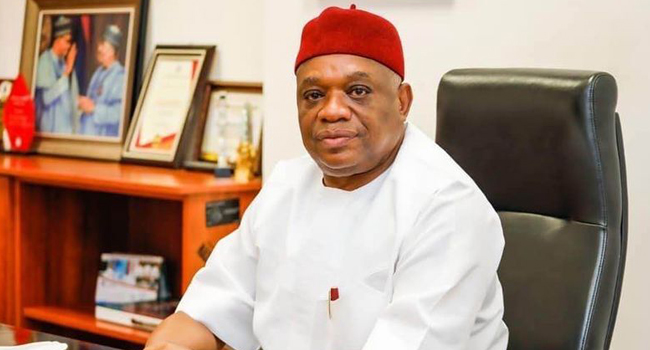Senator Orji Uzor Kalu, the former Governor of Abia State and current Senator representing the Abia North Senatorial District, has publicly declared his interest in the presidential race for 2027, arguing that he possesses both the qualifications and competency required for the position. In a recent interview on Channels Television’s Politics Today, Kalu emphasized that his potential candidacy would depend significantly on whether President Bola Tinubu decides to run for a second term. He articulated that while he holds aspirations for the presidency, his immediate objective remains to return to the Senate, where he believes he can continue to contribute to legislative processes effectively.
Kalu’s comments reflect a broader concern regarding Nigeria’s economic challenges, which he attributes to a lack of organized economic processes and a failure to establish a robust economic framework over the past sixty years. Kalu highlighted the necessity for the government to reduce expenditures, suggesting that austerity measures are essential for addressing the country’s current difficulties. He pointed out that President Tinubu has begun efforts to restore key institutions critical to economic revitalization, but acknowledged the complexities and contentious nature of the decisions required to navigate Nigeria’s fragile economic environment. Kalu noted that previous inaction has exacerbated the country’s situation, leading to widespread hardship among Nigerians.
In his assessment, Kalu remarked that the ongoing global economic deflation, while affecting countries worldwide, hits Nigeria particularly hard due to its weak institutional frameworks. He was critical of the continuation of handouts and ineffective economic policies and indicated that significant shifts were needed to improve the nation’s economic standing. He argued that tough decisions, although potentially unpopular, are essential for laying the groundwork for a more sustainable and prosperous economic future for Nigeria. His focus on institutional strength underscores his belief that foundational economic reforms are critical to addressing the issues plaguing the country.
Moreover, Kalu called for the government to adopt stricter austerity measures, urging officials to align their expenditures with available resources. He suggested that unnecessary spending should be curtailed, including the government’s practice of providing gifts to foreign countries. Such measures, according to Kalu, would reflect a commitment to sound fiscal management and accountability. His remarks indicate a broader belief that restraint in government spending could play a pivotal role in alleviating the financial burdens faced by ordinary Nigerians.
Kalu posited that President Tinubu is acutely aware of the struggles faced by the populace, sharing insights into Tinubu’s approach to understanding citizens’ challenges. He commented that the President often ventures out in the evenings to gauge the reality of the situation on the ground, depicting him as a leader who remains engaged with the societal issues at large. This portrayal aims to underline a contrasting image of leadership that is proactive and grounded in the real experiences of the people, as opposed to being insulated in the confines of power.
In conclusion, Kalu’s statements reflect his intent to remain a significant player in Nigerian politics, particularly as the country approaches the 2027 presidential election. He has expressed a commitment to addressing the pressing economic challenges facing Nigeria while advocating for necessary reforms that strengthen institutions and improve governance. As Kalu aims for a leadership role, whether in the form of a presidential candidacy or a return to the Senate, he has positioned himself as a concerned stakeholder in the nation’s future, advocating for a pragmatic approach to governance and economic recovery amidst the ongoing challenges faced by Nigerians.


